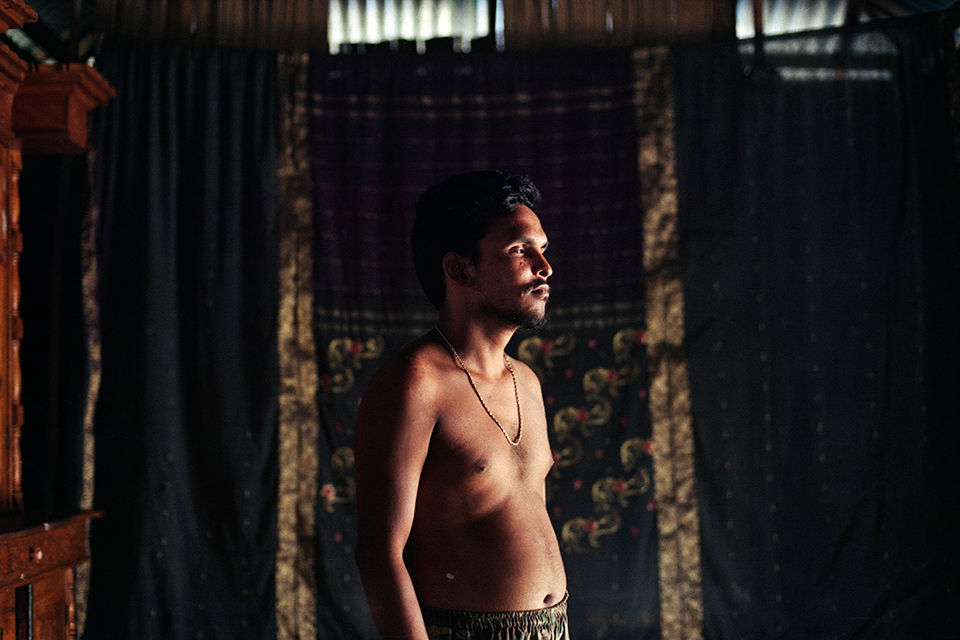Partha Sengupta
The Bloodiest Border বর্ডার
On the night of 26 July 2014, Suman Islam, a Muslim youth, was returning home after attending a dinner invitation at his relative’s house. On the way back, he was arrested by the Indian border guards on suspicion of being a smuggler who were patrolling the area. They took him to their barrack and throughout the night he was severely tortured. In the morning in an unconscious state, they hospitalized him at the district hospital. His family was not informed about the hospitalization. Couple of days later they found him a in a hospital bed, chained while soldiers were on guard with him.
The international border between West Bengal in India and Bangladesh is the most volatile and militarised zone in the world. In parallel to the Indian side of the border, majority of the populations are Muslims. Cross border illegal trades and poor economic situation dominates bothsides of the border region. Linguistic and cultural assimilation at this area made the Indian border guards always on suspicion of the identity crisis of the local population.
The border was made during the partition of India, the then Bengal province divided, West Bengal in India and Bangladesh (formerly East Pakistan) a sovereign country. The two lands have a commonality in linguistics, culture and creed. Their ignorance of the local history, made the Indian border guards vulnerable to differentiate between nations while the local population was subjected to their atrocities.
The project Bloodiest Border deals with the life of the people who stay on both sides intimidated by the Indian border guards. Brutality and death coupled with fear and suspicion are the reality they have to embrace. Forced abduction, extrajudicial killings, religious intolerance by the force are the complaints of the people are mostly unheard and justice done. The impunity of the force under the special law of the agency operates made them cruel enough to ignore human rights. On the morning of January 9, 2011, Felani a Bangladeshi teenage girl was killed instantly by a border guard. Against this heinous crime, a case was filed to the Supreme Court of India adjourned many times and still pending. Each year there are unaccounted deaths and torture took place in the Indian and Bangladesh side, where few are reported in the Indian media.

Bablu lost both of his eye due to bullet injury fired by Indian border guards. His family spend thousands of rupees and sold part of their farmland for his treatment.

The wintry mist blurred the international border of West Bengal in India and Bangladesh.

Swapan with his wife Arunima, and his sons and daughters Nilkantha and Sagarika gazing at the river Padma. His son Achintya was murdered by Indian border guards and dumped his body in a remote place near the river. Many days later with the help of local police and people, his family recovered his decomposed body from the river.

Bablu lost both of his eye due to bullet injury fired by Indian border guards. His family spend thousands of rupees and sold part of their farmland for his treatment.